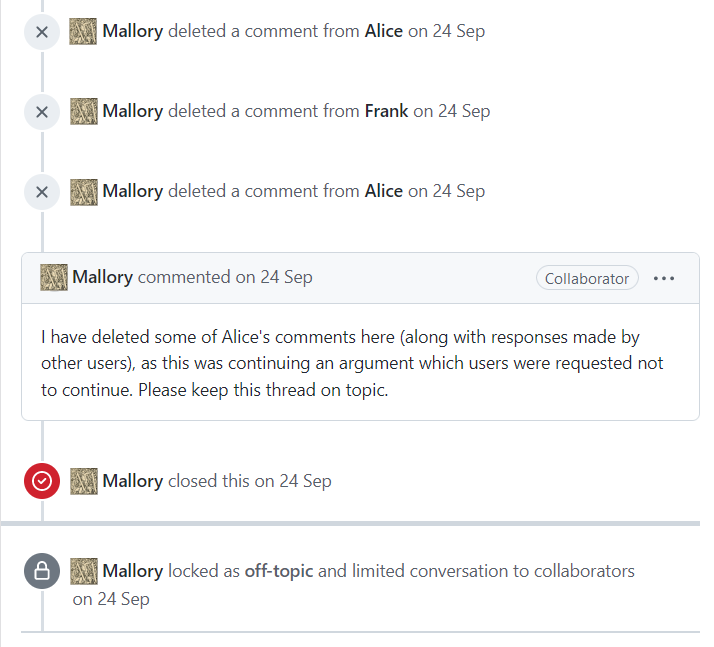 |
Leet
Leet (or "1337"), also known as eleet or leetspeak, or simply hacker speech, is a system of modified spellings used primarily on the Internet. It often uses character replacements in ways that play on the similarity of their glyphs via reflection or other resemblance. Additionally, it modifies certain words on the basis of a system of suffixes and alternative meanings. There are many dialects or linguistic varieties in different online communities. The term "leet" is derived from the word '' elite'', used as an adjective to describe skill or accomplishment, especially in the fields of online gaming and computer hacking. The leet lexicon includes spellings of the word as ''1337'' or ''leet''. History Leet originated within bulletin board systems (BBS) in the 1980s,Mitchell.An Explanation of l33t Speak. where having "elite" status on a BBS allowed a user access to file folders, games, and special chat rooms. The Cult of the Dead Cow hacker collective has been credited ... [...More Info...] [...Related Items...] OR: [Wikipedia] [Google] [Baidu] |
 |
Cult Of The Dead Cow
Cult of the Dead Cow, also known as cDc or cDc Communications, is a computer hacker and DIY media organization founded in 1984 in Lubbock, Texas. The group maintains a weblog on its site, also titled " ult of the Dead Cow. New media are released first through the blog, which also features thoughts and opinions of the group's members. Timeline The group was formed in June 1984 at the Farm Pac slaughterhouse by Grandmaster Ratte' (aka Swamp Ratte'), Franken Gibe, Sid Vicious, and three BBS SysOps. In the 1980s the Cult of the Dead Cow organized and maintained a loose collective of affiliated BBSs across the US and Canada. It was during this time that the cDc is credited with coining the term "31337" as an alternative spelling of " Eleet" or "Elite", an expression denoting skill or greatness in a person, place, or thing. In December 1990, cDc member Jesse Dryden (aka Drunkfux), the son of Jefferson Airplane drummer Spencer Dryden and grand nephew of Charlie Chaplin, cr ... [...More Info...] [...Related Items...] OR: [Wikipedia] [Google] [Baidu] |
|
Algospeak
In social media, algospeak is the use of coded expressions to evade automated content moderation. It is used to discuss topics deemed sensitive to moderation algorithms while avoiding penalties such as shadow banning, downranking, or de-monetization of content. It is a type of internet slang and a form of linguistic self-censorship. The term ''algospeak'' is a portmanteau of ''Algorithm'' and ''-speak''; it is also known as slang replacement or Voldemorting, referencing the fictional character also known as "He-Who-Must-Not-Be-Named". Algospeak is different from other types of netspeak in that its primary purpose is to avoid censorship, rather than to create a communal identity, though it may still be used for such end. Causes and motivations Many social media platforms rely on automated content moderation systems to enforce their guidelines, which are often not determined by users themselves. TikTok in particular uses artificial intelligence to proactively moderate content, i ... [...More Info...] [...Related Items...] OR: [Wikipedia] [Google] [Baidu] |
|
|
Internet Meme
An Internet meme, or meme (, Help:Pronunciation respelling key, ''MEEM''), is a cultural item (such as an idea, behavior, or style) that spreads across the Internet, primarily through Social media, social media platforms. Internet memes manifest in a variety of formats, including images, videos, GIFs, and other Viral phenomenon, viral content. Newer internet memes are often defined as brain rot. Key characteristics of memes include their tendency to be Parody, parodied, their use of intertextuality, their viral dissemination, and their continual evolution. The term ''meme'' was originally introduced by Richard Dawkins in 1972 to describe the concept of cultural transmission. The term ''Internet meme'' was coined by Mike Godwin in 1993 in reference to the way memes proliferated through early online communities, including message boards, Usenet groups, and email. The emergence of social media platforms such as YouTube, Twitter, Facebook, and Instagram further diversified memes a ... [...More Info...] [...Related Items...] OR: [Wikipedia] [Google] [Baidu] |
|
|
Wordfilter
A wordfilter (sometimes referred to as just "filter" or "censor") is a script typically used on Internet forums or chat rooms that automatically scans users' posts or comments as they are submitted and automatically changes or censors particular words or phrases. The most basic wordfilters search only for specific strings of letters, and remove or overwrite them regardless of their context. More advanced wordfilters make some exceptions for context (such as filtering "butt" but not "butter"), and the most advanced wordfilters may use regular expressions. Functions Wordfilters can serve any of a number of functions. Removal of vulgar language A ''swear filter'', also known as a ''profanity filter'' or ''language filter'' is a software subsystem which modifies text to remove words deemed offensive by the administrator or community of an online forum. Swear filters are common in custom-programmed chat rooms and online video games, primarily MMORPGs. This is not to be confuse ... [...More Info...] [...Related Items...] OR: [Wikipedia] [Google] [Baidu] |
|
 |
Bulletin Board System
A bulletin board system (BBS), also called a computer bulletin board service (CBBS), is a computer server running list of BBS software, software that allows users to connect to the system using a terminal program. Once logged in, the user performs functions such as uploading and downloading software and data, reading news and bulletins, and exchanging messages with other users through public Internet forum, message boards and sometimes via direct synchronous conferencing, chatting. In the early 1980s, message networks such as FidoNet were developed to provide services such as M+NetMail, NetMail, which is similar to internet-based email. Many BBSes also offered BBS door, online games in which users could compete with each other. BBSes with multiple phone lines often provided chat rooms, allowing users to interact with each other. Bulletin board systems were in many ways a precursor to the modern form of the World Wide Web, social networking service, social networks, and other aspe ... [...More Info...] [...Related Items...] OR: [Wikipedia] [Google] [Baidu] |
 |
Online Game
An online game is a video game that is either partially or primarily played through the Internet or any other computer network available. Online games are ubiquitous on modern gaming platforms, including PCs, consoles and mobile devices, and span many genres, including first-person shooters, strategy games, and massively multiplayer online role-playing games (MMORPG). In 2019, revenue in the online games segment reached $16.9 billion, with $4.2 billion generated by China and $3.5 billion in the United States. Since the 2010s, a common trend among online games has been to operate them as games as a service, using monetization schemes such as loot boxes and battle passes as purchasable items atop freely-offered games. Unlike purchased retail games, online games have the problem of not being permanently playable, as they require special servers in order to function. The design of online games can range from simple text-based environments to the incorpor ... [...More Info...] [...Related Items...] OR: [Wikipedia] [Google] [Baidu] |
 |
Hacker (computer Security)
A security hacker or security researcher is someone who explores methods for breaching or bypassing defenses and exploiting weaknesses in a computer system or network. Hackers may be motivated by a multitude of reasons, such as profit, protest, sabotage, information gathering, challenge, recreation, or evaluation of a system weaknesses to assist in formulating defenses against potential hackers. Longstanding controversy surrounds the meaning of the term "hacker". In this controversy, computer programmers reclaim the term ''hacker'', arguing that it refers simply to someone with an advanced understanding of computers and computer networks, and that ''cracker'' is the more appropriate term for those who break into computers, whether computer criminals ( black hats) or computer security experts ( white hats). A 2014 article noted that "the black-hat meaning still prevails among the general public". The subculture that has evolved around hackers is often referred to as the "co ... [...More Info...] [...Related Items...] OR: [Wikipedia] [Google] [Baidu] |
 |
Euphemism
A euphemism ( ) is when an expression that could offend or imply something unpleasant is replaced with one that is agreeable or inoffensive. Some euphemisms are intended to amuse, while others use bland, inoffensive terms for concepts that the user wishes to downplay. Euphemisms may be used to mask profanity or refer to Dysphemism#Taboo terms, topics some consider Word taboo, taboo such as mental or physical disability, sexual intercourse, bodily excretions, pain, violence, illness, or death in a polite way. Etymology ''Euphemism'' comes from the Greek language, Greek word () which refers to the use of 'words of good omen'; it is a compound of (), meaning 'good, well', and (), meaning 'prophetic speech; rumour, talk'. ''Eupheme (deity), Eupheme'' is a reference to the female Greek spirit of words of praise and positivity, etc. The term ''euphemism'' itself was used as a euphemism by the ancient Greeks; with the meaning "to keep a holy silence" (speaking well by not speaking at ... [...More Info...] [...Related Items...] OR: [Wikipedia] [Google] [Baidu] |
 |
Internet Censorship
Internet censorship is the legal control or suppression of what can be accessed, published, or viewed on the Internet. Censorship is most often applied to specific internet domains (such as ''Wikipedia.org'', for example) but exceptionally may extend to all Internet resources located outside the jurisdiction of the censoring state. Internet censorship may also put restrictions on what information can be made internet accessible. Organizations providing internet accesssuch as schools and librariesmay choose to preclude access to material that they consider undesirable, offensive, age-inappropriate or even illegal, and regard this as ethical behavior rather than censorship. Individuals and organizations may engage in self-censorship of material they publish, for moral, religious, or business reasons, to conform to societal norms, political views, due to intimidation, or out of fear of legal or other consequences. The extent of Internet censorship varies on a country-to-country ba ... [...More Info...] [...Related Items...] OR: [Wikipedia] [Google] [Baidu] |
|
Emoticon
An emoticon (, , rarely , ), short for emotion icon, is a pictorial representation of a facial expression using Character (symbol), characters—usually punctuation marks, numbers and Alphabet, letters—to express a person's feelings, mood or reaction, without needing to describe it in detail. ASCII emoticons can be traced back hundreds of years with various one-off uses. The protocol as a way to use them to communicate emotion in conversations is credited to computer scientist Scott Fahlman, who proposed what came to be known as "smileys"—:-) and —in a message on the bulletin board system (BBS) of Carnegie Mellon University in 1982. In Western countries, emoticons are usually written at a right angle to the direction of the text. Users from Japan popularized a kind of emoticon called ''kaomoji'', using Kana, Japanese's larger character sets. This style arose on ASCII NET of Japan in 1986. They are also known as ''verticons'' (from ''vertical emoticon'') due to their re ... [...More Info...] [...Related Items...] OR: [Wikipedia] [Google] [Baidu] |
|
 |
Content Moderation
On websites that allow users to create content, content moderation is the process of detecting contributions that are irrelevant, obscene, illegal, harmful, or insulting. The purpose of content moderation is to remove or apply a warning label to problematic content or allow users to block and filter content themselves. It is part of the wider discipline of trust and safety. Various types of Internet sites permit user-generated content such as posts, comments, videos including Internet forums, blogs, and news sites powered by scripts such as phpBB, a wiki, PHP-Nuke, etc. Depending on the site's content and intended audience, the site's administrators will decide what kinds of user comments are appropriate, then delegate the responsibility of sifting through comments to lesser moderators. Most often, they will attempt to eliminate trolling, spamming, or flaming, although this varies widely from site to site. Major platforms use a combination of algorithmic tools, user repor ... [...More Info...] [...Related Items...] OR: [Wikipedia] [Google] [Baidu] |